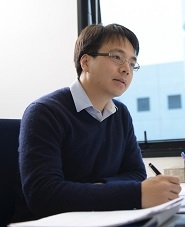The discovery over the past few decades of new fundamental particles – the building blocks of the universe -- such as quarks and Higgs boson has attracted plenty of attention. These findings have been made possible thanks to particle accelerators, up to tens of kilometers in length, that accelerate the particles to very high energies. In this talk, Professor Law explains how new types of particles can potentially be found in superconductors 1,000 times thinner than a hair. Known as Majorana particles, these can be used for quantum computations able to perform calculations much faster than regular computers. However, there is as yet no conclusive evidence regarding the discovery of Majoranas. With recent investments by corporations such as Google and Microsoft, it is hoped that Majorana-based quantum computers can be realized in the near future. Professor Law discusses the theoretical and experimental pursuit of Majorana particles at HKUST.









